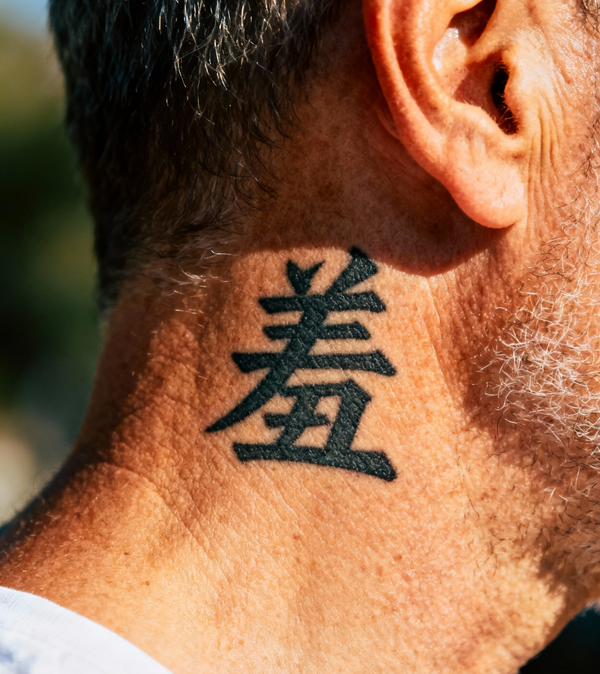 I. The Core Meaning of the Kanji "羞" (shū)
I. The Core Meaning of the Kanji "羞" (shū)
The kanji "羞" carries a profound and complex emotional weight. Its core meaning revolves around "shame," "bashfulness," and "humiliation." It describes a feeling of acute self-consciousness arising from wrongdoing, inadequacy, or social exposure.
1. Literal & Emotional Meanings:
Shame; Humiliation:
羞恥 (しゅうち, shūchi) - Shame; disgrace.
Bashfulness; Shyness:
羞ずかしい (はずかしい, hazukashii) - Shy; embarrassed; ashamed. (This is the most common modern reading and usage, though the kanji 恥 is more standard for this word).
2. Cultural & Symbolic Meanings:
In Japanese culture, the concept of "羞" (shame) is deeply intertwined with social harmony and morality.
A Social and Moral Compass: The feeling of 羞恥心 (shūchishin), or a "sense of shame," is not always viewed as purely negative. It is often seen as a necessary social virtue—an internal compass that guides behavior and maintains group harmony by preventing one from acting in a selfish or disruptive way.
Vulnerability and Purity: The state of being 羞ずかしい (hazukashii), or bashful, can also be associated with sincerity, modesty, and a pure, uncalculating heart. A blush of embarrassment can be seen as a sign of genuine feeling.
II. "羞" as a Tattoo: Meanings and STRONG Warnings
A tattoo of "羞" is an extremely profound, introspective, and high-risk choice. It is not a symbol of outward strength but of deep internal vulnerability and moral consciousness.
Potential Intended Meanings (from the wearer's perspective):
A Commitment to Humility and Self-Reflection: The tattoo could symbolize a personal vow to remain humble, to be acutely aware of one's own faults, and to constantly engage in self-reflection. It is a permanent reminder to have a strong 羞恥心 (sense of shame) as a moral guide.
Acknowledgment and Acceptance of Past Wrongs: It could represent a past action or period of life that caused the wearer deep shame, serving not as a mark of self-punishment, but as a testament to having faced that shame, learned from it, and integrated it into one's identity.
An Embrace of Vulnerability: For someone who is naturally very shy or introverted, it could be a way of embracing and owning that part of their personality, viewing it not as a weakness but as a form of sincere and unguarded authenticity.
⚠️ CRITICAL WARNINGS & NEGATIVE INTERPRETATIONS ⚠️
It is strongly recommended to avoid getting a tattoo of the character "羞."
Overwhelmingly Negative Connotation: For any native Japanese speaker, a standalone "羞" is unambiguously negative. It screams "SHAME" and "HUMILIATION." It is a character associated with deep personal failure, regret, and social disgrace. It will be perceived as a symbol of self-loathing, profound sadness, or a permanent stain on one's identity.
Social and Cultural Misunderstanding: This tattoo will cause immediate concern and discomfort. It could be interpreted as a cry for help or a public declaration of being burdened by a heavy, unresolved guilt.
Displays a Profound Misunderstanding: Choosing this character for a tattoo demonstrates a severe lack of understanding of its cultural and emotional weight. It is the linguistic equivalent of tattooing "SHAME" or "HUMILIATION" on yourself.
Psychological Burden: Having a permanent, public reminder of "shame" on your body could be psychologically damaging, reinforcing negative self-perceptions rather than promoting growth.
Conclusion and Recommendation
Under no circumstances should you get a tattoo of the character "羞."
The risk of severe negative misinterpretation, social alienation, and self-inflicted psychological harm is astronomically high. Its association with shame is simply too dominant and damaging.
If you are drawn to the concepts of "humility," "reflection," or "sincerity," here are perfect and powerful alternatives:
To express "humility," use: 謙 (ken - humility) or 慎 (shin - discretion, humility).
To express "self-reflection," use: 省 (sei - introspection, as in 反省 hansei).
To express "sincerity," use: 誠 (makoto - sincerity, truth) or 実 (jitsu - truth, reality).
In summary, "羞" is one of the worst possible choices for a kanji tattoo. Its meaning is unambiguously negative and associated with deep emotional pain. Please choose a different symbol that focuses on positive growth, strength, or virtue, rather than a painful emotional state you wish to move beyond. A tattoo should be a source of strength, not a reminder of shame.